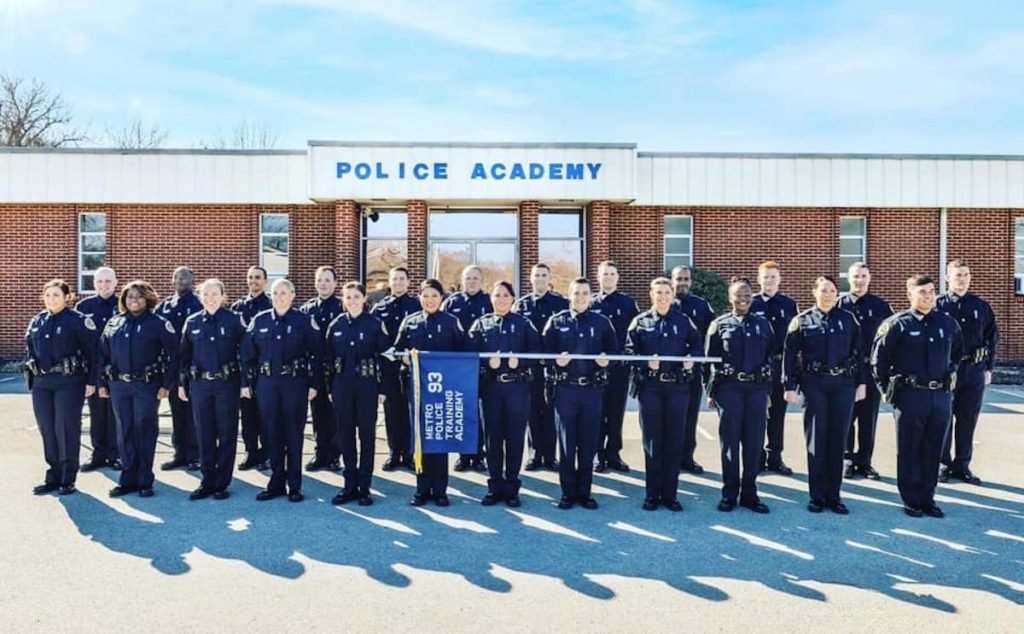
For years, Nashville’s police academy has accepted few women. Even fewer have actually completed their training and become officers.
Research suggests women use force less often and can build trust with community members. Now, the police department is trying to increase their numbers in the ranks.
The department gained 25 new officers Thursday. At a training academy graduation ceremony, Chief John Drake said there was something different about the latest group of recruits.
“This class is unique in that its makeup is 40% female,” he said.
That’s a major jump from recent years. A WPLN News analysis found that between 2011 and 2020, women and people of color graduated from the police academy at much lower rates than white men.
More: Read our series, “Rethinking The Police Academy.”
While 83% of white, male trainees graduated from the academy, only about 70% of nonwhite men did. For women of all races, the rate was just about 60%. During that time, less than 10% of recruits who made it through the training were women.
Drake acknowledged that many people who apply to be police officers are weeded out along the way.
“Not everyone has the character and personality and integrity and drive to become a Metro police officer,” he said. “Each of you were thoroughly questioned and tested even before entering the academy, and some of your classmates didn’t make it to today, but you did, and you should be proud of that.”
Deputy Chief Kay Lokey, who oversees the department’s recruitment and training divisions, has called the past graduation rates “disheartening.” She told WPLN News last year that she wants more women and people of color on the force.
“Our goal is to look like the people that we go out and protect and serve,” Lokey said.
Last year, the department signed onto the national 30×30 initiative, which aims to fill a third of police ranks with women by the end of the decade. Currently, about 11% of Nashville officers are women.
MNPD has recently made several changes in its recruitment and training units to attract and support more diverse applicants. The department has updated its physical agility test and eliminated some exercises that women often failed. It has also created a pre-academy to help recruits get in shape before they start their official training program and assigned mentors to new hires, to help them get acclimated to the department.
“You always can be better,” Lokey said. “We will always push ourselves to do better and to relate better to the citizens.”

